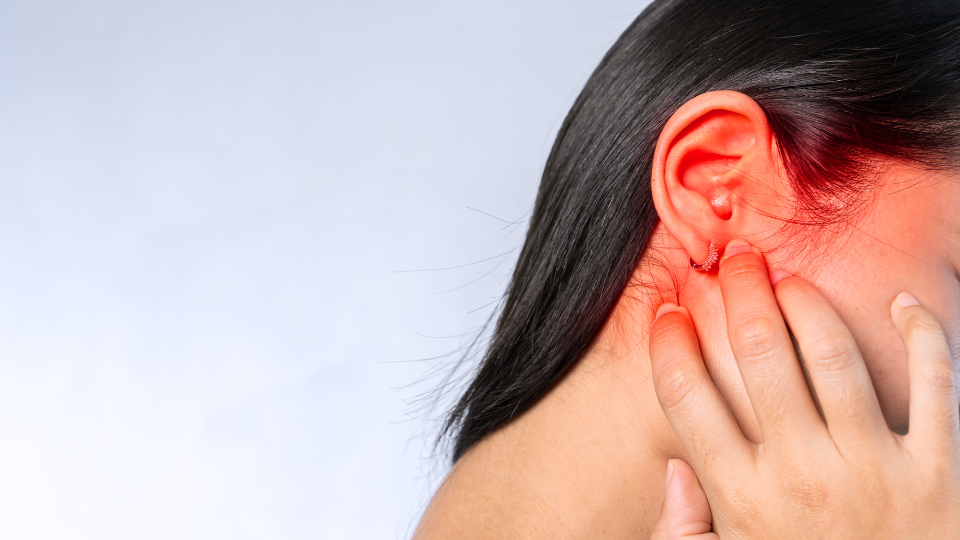We’ve all experienced occasional ringing in our ears after exposure to loud environments or during periods of stress; usually, it subsides on its own. Tinnitus is a condition characterized by the perception of sound when there is no external source. This phantom noise, often described as ringing, buzzing, hissing, or humming, can range from mildly annoying to severely debilitating. Understanding what causes tinnitus is essential for managing the condition and seeking appropriate treatment. Our expert audiologists can help you get to the bottom of your hearing concerns.
Common Causes of Tinnitus
Noise Exposure
One of the most common causes of tinnitus is exposure to loud noises. Whether from a single, intense burst like an explosion or prolonged exposure to high decibel levels such as music concerts or machinery, loud sounds can damage the delicate hair cells in the inner ear. These cells are crucial for translating sound waves into electrical signals that the brain interprets as sound. When they are damaged or destroyed, the brain may attempt to compensate by generating the sensation of sound, resulting in tinnitus.
Aging
Another significant cause of tinnitus is age-related hearing loss, known as presbycusis. As you age the hair cells in the inner ear gradually deteriorate, leading to a decline in hearing. Tinnitus often accompanies this hearing loss as the brain tries to compensate for the diminished auditory input by creating sounds. This type of tinnitus is prevalent in older adults.
Ear Infections or Blockages
Tinnitus can also be linked to ear infections or blockages. Earwax can build up in the ear canal and cause irritation or pressure on the eardrum, leading to tinnitus. Similarly, middle ear infections, which cause fluid accumulation and inflammation, can create an environment where tinnitus is likely. In these cases, treating the underlying ear condition can often alleviate the tinnitus symptoms.
Medication Side Effects
Certain medications are known to be ototoxic, which can damage the inner ear and lead to tinnitus. These include some antibiotics, diuretics, chemotherapy drugs, and even high doses of aspirin. The risk of developing tinnitus from these medications increases with higher doses or prolonged use. If tinnitus begins after starting a new medication, it’s essential to consult a healthcare provider to discuss potential alternatives.
Meniere’s Disease
Meniere’s disease, an inner ear disorder, is another potential cause of tinnitus. This condition is associated with abnormal fluid buildup in the inner ear, leading to episodes of vertigo, hearing loss, and tinnitus. The exact cause of Meniere’s disease isn’t fully understood, but it is thought to involve a combination of genetic and environmental factors.
Underlying Health Conditions
Tinnitus can also be caused by physical conditions that affect blood flow in the head and neck. For instance, conditions like high blood pressure or atherosclerosis, where the blood vessels become narrowed or clogged, can result in turbulent blood flow. This can produce a rhythmic sound in sync with the heartbeat, known as pulsatile tinnitus.
Stress
Stress and anxiety can also exacerbate or even trigger tinnitus. The relationship between tinnitus and psychological factors is complex, but stress can heighten the perception of tinnitus, making it more noticeable and bothersome. This creates a vicious cycle where the more a person focuses on the tinnitus, the more stressful it becomes, and the more pronounced the symptoms can feel.
Managing Tinnitus With The ENT & Allergy Centers of Texas
Whether it involves protecting your hearing, treating ear infections, or seeking medical advice, there are steps you can take to minimize the impact of tinnitus on your daily life. If you’re experiencing persistent tinnitus, consulting with a qualified healthcare provider, such as those at The ENT & Allergy Centers of Texas, can help identify the root cause and develop a personalized treatment plan. Schedule an appointment at an ENT & Allergy Centers of Texas office near you.




